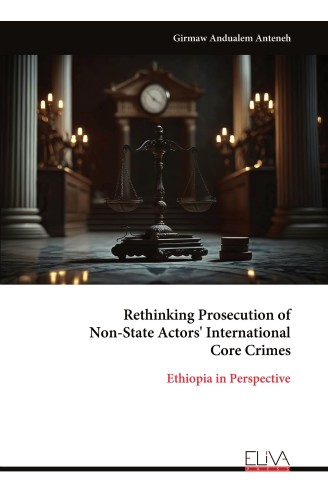
Rethinking Prosecution of Non-State Actors' International Core Crimes
$ 99
Description
The persistent commission of core international crimes (genocide, war crimes, and crimes against humanity) by Non-State Actors (NSAs) represents one of the most pressing challenges to global justice systems. While scholarly debates on NSA accountability under international law continue, Ethiopia’s complex history of armed conflicts offers a crucial context for examining this dilemma. Despite multiple attempts at prosecution since 1991, Ethiopia’s legal system has consistently failed to deliver meaningful justice for NSA-perpetrated atrocities, leaving victims without redress and perpetuating cycles of violence. This seminal research provides the first comprehensive examination of Ethiopia’s institutional and legal frameworks of investigation, prosecution, and adjudication of NSAs’ atrocities. Through rigorous qualitative analysis of: case studies, in-depth interviews with key informants, and direct crime-scene observations. The study uncovers critical systemic failures, whereby accountability mechanisms are neither impartial nor effective. Include inadequate normative frameworks, structural deficiencies in law enforcement and judicial bodies, inconsistent prosecutorial practices, and a fundamental lack of specialised mechanisms to address the unique challenges posed by NSA crimes. As Ethiopia implements transitional justice processes, the research offers timely, evidence-based recommendations for comprehensive reform: legislative amendments to rectify legal gaps, establishment of specialised investigative, prosecutorial units, judicial structure, development of clear operational guidelines, and the adoption of a victim-centered approach, in an effort to end impunity. The study makes vital contributions to both theory and practice. It advances the global discourse on NSA accountability while providing actionable policy solutions for Ethiopia and other post-conflict societies grappling with similar challenges. For legal scholars, human rights practitioners, policymakers, and transitional justice experts, the work represents an indispensable resource in the ongoing struggle to uphold the rule of law and to ensure justice for the most serious international crimes.



